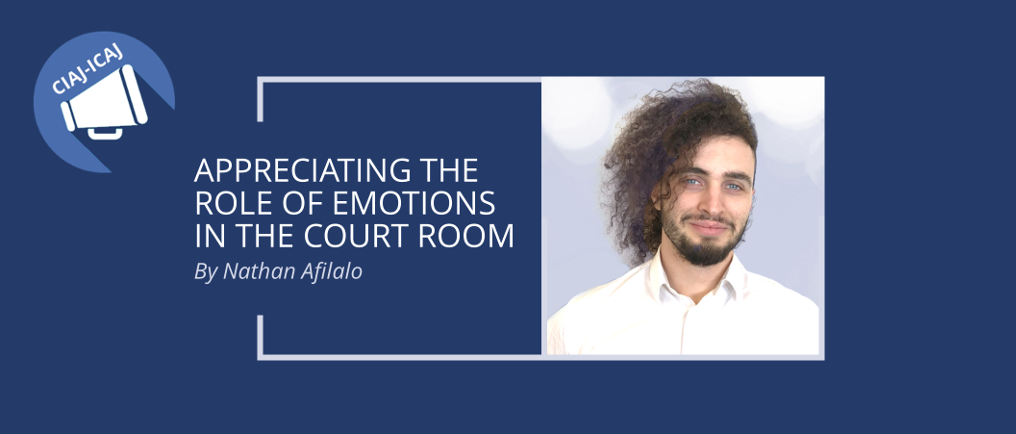Appreciating the Role of Emotions in the Court Room

The judges at the Montreal Palais de Justice have to be commended for their commitment to the training and education of law students. The Court accepted 12 candidates from CIAJ’s judicial internship program despite the difficult circumstances caused by the COVID-19 pandemic. Considering the social distancing protocols put in place at the court, one could easily forgive the judges for refusing to accept a cohort of unfamiliar students. But they did nevertheless, and as one of those students they let in I will share my experience.
The majority of the matters I was fortunate enough to observe were family law cases. What I anticipated learning was the application of substantive and procedural law, which is the case for most who work alongside a judge. However, unexpectedly, what I learnt in addition was how to engage in “emotional management” during a trial.
What is meant by “emotional management” is understanding how best to react as a legal actor[1] when at the crossroads of the solemnity of the court and the heartbreaking human conflict that is the impetus for the trial. Put in more concrete terms, what is the healthiest way to work through visceral moments of collective emotional overload where the case touches every party in attendance including the judge, lawyers and court staff?
To some this may seem like a trite, quaint and easily answerable question: let the parties react within the boundaries of orderliness while the judges and lawyers retain their traditional composure. In response I would say, even during my brief time at the Palais de Justice, I witnessed a case where maintaining that status quo was not altogether possible.
This is not to say the trial devolved into something else other than that. On the contrary, the presiding judge took that moment of collective emotional turbulence to address the parties and put into perspective the purpose and consequence of their litigation, questioning whether the judgment by a third party was best for the parties involved and affected. The Court gave the parties a final attempt to reconcile between themselves and agree to a resolution rather than have one imposed.
When I later discussed the ordeal with the judge he explained to me that tears or laughter in the courtroom can be good for the parties involved, and indeed, even appropriate. The process to resolve the conflict should not take priority over the conflict itself. While the lawyer is there to advocate for their client’s position, and the judge to decide it with “olympian” indifference, to pretend that the actors involved are unaffected can worsen the already onerous realities of a trial. Rather than foregoing emotional responses, measured acknowledgments of compassion might very well help the parties and the legal actors involved work through the case in a healthier way. Such acknowledgements may even begin the long work of healing that might be needed for everyone involved regardless of whether a legal victory is achieved.
The legal questions I encountered, the lawyers’ lessons in trial advocacy, and the deliberation and decision of the judge were instructive beyond what a three-month course could offer.
But what I came away with most was a profound understanding that the business of law has at its core human conflicts and real people undertaking the task to resolve them. Outside of any formal or substantive legal stipulation, just or unjust law, the pain of the people subject to the law remains. And in my brief time at the Palais de Justice I began to learn how to confront and manage that pain thanks to the judges who let a cohort of students into their confidence. It was a profoundly rewarding experience.
[1] Albeit in the case of a clerk, an absolutely and profoundly silent and minor actor.
In 2019, CIAJ has created a Judicial Internships Across Canada program in order to provide law students with the possibility to participate in a judicial internship at the provincial, federal or administrative level. Internships take place between May 1 and September 1 of the current year, over the course of one week or more depending on the availability of participating judges.

